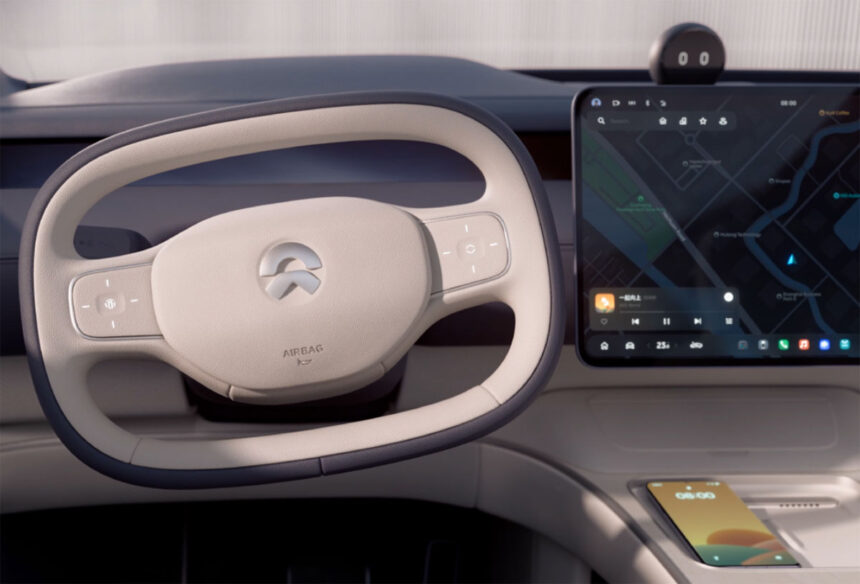Nio (NYSE: NIO) recently made an exciting announcement regarding the steer-by-wire (SBW) technology in its flagship sedan, the ET9. The Ministry of Industry and Information Technology (MIIT) in China has given its approval for mass production of the SBW technology in the vehicle, making it the first mass-produced car in China to feature this cutting-edge technology.
SBW technology revolutionizes the traditional steering system by eliminating the mechanical connection between the steering wheel and the turning wheels. Instead, the steering is controlled by electrical signals, offering a host of benefits for electric vehicles (EVs). This innovative approach allows for the design of the steering wheel angle and resistance torque to be customized, resulting in lower delays, more precise control, efficient transmission, and flexible arrangement.
Nio has taken the lead in developing and testing the SBW technology for the ET9, as there is currently no national standard in place for this technology. The company’s efforts have paid off, with industry experts reviewing and approving the SBW system for mass production.
The SBW system in the ET9 boasts a redundant design with dual power supply, dual communication, dual hardware, and dual software, enhancing its reliability. In fact, Nio claims that SBW is 2.2 times more reliable than the Electric Power Steering commonly used in the automotive industry today.
Moreover, SBW is instrumental in enabling integrated control of the car chassis and serves as the foundation for advanced smart EVs. This technology is crucial for achieving Level 3 and higher levels of intelligent driving and is expected to become a standard feature in future flagship models.
One of the standout features of the ET9’s SBW system is its ability to filter out over 80% of road vibrations, providing a smoother driving experience. Additionally, drivers can customize the steering wheel road feel, choosing between a smooth low road feel mode for business trips and a high road feel mode for a more engaging driving experience.
The SBW system also offers expanded steering column movement, providing more space for the driver compared to traditional mechanical steering columns. With multiple safety redundancies in place, the angle sensors in the SBW system ensure a high level of safety, with a minimal probability of steering failure.
Overall, Nio’s SBW technology represents a significant advancement in the automotive industry, offering enhanced reliability, control, and comfort for drivers. As the first mass-produced vehicle in China to feature SBW technology, the ET9 sets a new standard for intelligent driving and paves the way for future innovations in the EV sector.







